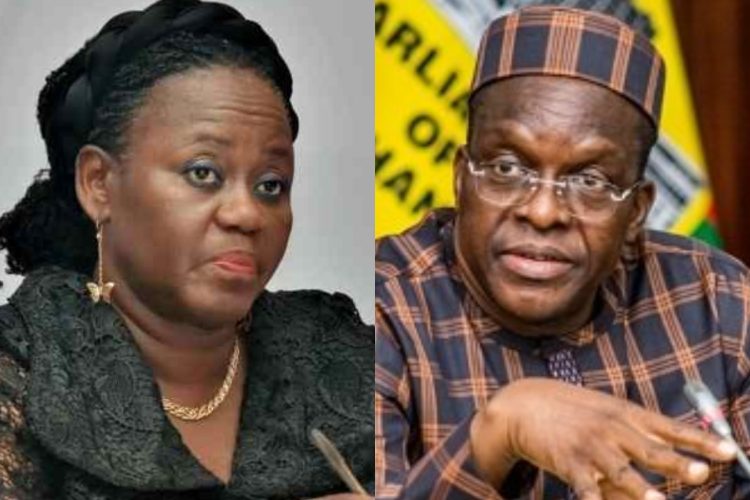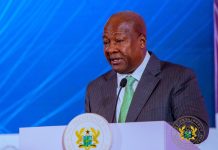The Supreme Court of Ghana has rejected an application from the Speaker of Parliament, Alban Bagbin, which aimed to overturn a prior ruling that temporarily halted his declaration of four parliamentary seats as vacant.
This ruling marks a recent development in an ongoing legal dispute regarding the Speaker’s authority and judicial involvement in parliamentary matters.

Speaker Bagbin submitted the application in an effort to reverse the Supreme Court’s earlier decision that had restrained him from enforcing his ruling on the four contested seats.
The application also sought to invalidate the writ submitted by Majority Leader Alexander Afenyo-Markin, which requested the court to stop Bagbin from issuing further rulings concerning the disputed seats.
In the application presented by Bagbin’s attorney, Thaddeus Sory, the Speaker contended that the court overstepped its jurisdiction by suspending a parliamentary decision that the court had no authority to review.
Bagbin’s motion argued that since the Speaker’s ruling is not a judicial decision, it should not be subject to a stay of execution typically reserved for court judgments.
The Speaker’s motion stated: “Regarding orders staying execution of rulings, the Supreme Court’s authority, under the 1992 Constitution of the Republic of Ghana and related statutes, to stay execution is limited to rulings from itself and lower courts, and does not extend to a ruling from the Speaker of Parliament, who is not part of the judicial hierarchy.”
Bagbin further asserted that the Speaker’s rulings, as head of a distinct branch of government, fall outside the judicial hierarchy and therefore should not be subject to stays of execution by the court.
He emphasized that the court’s interference in a non-judicial ruling risks undermining the separation of powers established by Ghana’s Constitution.
However, in her ruling, the Chief Justice stated, “Given the potential irreparable harm to the constituencies comprising hundreds of thousands of Ghanaians who would be left without MPs and without the option for by-elections, along with the irreversible effects on MPs who might lose their seats just weeks before the December 7 election, it is crucial for this court to address this dispute promptly instead of issuing a 10-day interim order on Article 97(1)(g) as interpreted by the Speaker.”
She further noted that it is essential for the Supreme Court to expedite the proceedings, shortening the standard 14-day period, by allowing the constitutional action to move forward through a statement of case. This requires parties to submit their claims within seven days to swiftly resolve the issues at hand.
The Chief Justice indicated that had all parties complied with these directives within the proposed timeframe, the case could have been resolved within the 10 days requested by the applicant.






















































![[FREE FREE MONEY] Predict and Win a Guaranteed GH¢200 From Us EVERY WEEK](https://wordpress.ghanatalksradio.com/wp-content/uploads/2022/02/Predict-and-Win-Final-09-03-2021-218x150.jpg)
![[Predict & Win – 8th/Oct.] WIN A Guaranteed ¢200 From Us This Week](https://wordpress.ghanatalksradio.com/wp-content/uploads/2021/10/maxresdefault-16-218x150.jpg)
![[Predict & Win – 2nd] WIN A Guaranteed ¢200 From Us This Week](https://wordpress.ghanatalksradio.com/wp-content/uploads/2021/09/maxresdefault-50-218x150.jpg)
![[Predict & Win – 25th] WIN A Guaranteed ¢200 From Us This Week](https://wordpress.ghanatalksradio.com/wp-content/uploads/2021/09/maxresdefault-36-218x150.jpg)
![[Predict & Win – 18th] WIN A Guaranteed ¢200 From Us This Week](https://wordpress.ghanatalksradio.com/wp-content/uploads/2021/09/maxresdefault-23-218x150.jpg)








![[National cathedral] See full list of churches that have contributed since 2018](https://wordpress.ghanatalksradio.com/wp-content/uploads/2020/09/Ghana-National-Cathedral-GhanaTalksRadio-100x70.jpg)



